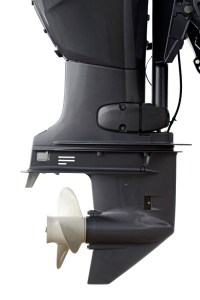Eight Expert Boat Maintenance Tips
As fun as it is to own a boat if you ever get a chance to use it, they can create several headaches if you neglect maintenance. Following these tips can help you stay on the water and out of the garage performing unplanned, expensive repairs.
Check trailer tire pressure and condition – If you don’t get your boat to the lake, you can’t get to the fish. Trailer maintenance is often completely forgotten. It’s not uncommon to see someone pulled over alongside the highway because their trailer tire blew out.
Trailer tires typically run at higher psi than automotive tires. Check the sidewall for the correct pressure, which is likely around 50 psi. A low tire equals a hot tire, and hot tires are more likely to blow out. Check for weather cracking. Trailer tires often sit outside year-round, exposed to the sun. Replace cracked tires and store your trailer with the tires elevated during the off-season.
Grease trailer bearings – Like the tires, trailer wheel bearings are easy to overlook. They are submerged in water every time you launch and load your boat. Although the hub seals are designed to keep water out, age and neglect can allow water intrusion, which invites rust and corrosion. Rust acts like sandpaper and scours the ball bearings, causing them to run hotter and boil the grease out, worsening the problem.
Grease the bearings at least once a year with a high-quality synthetic grease designed to resist water washout, such as AMSOIL Synthetic Water-Resistant Grease.
That grease by the way is my choice for just about everything in my garage. If you happen to sell the boat or are reading this article for future knowledge get yourself a tube of this stuff. It’s one of the most advanced AMSOIL products. Get this grease and a can of Silicone Spray for your reels while you are at it.
Change lower unit gear lube – Your boat motor’s lower unit is continuously exposed to water. If water infiltrates the lower unit, the gear lube can foam, which compromises wear protection. Change the gear lube at the end of the season to ensure peak protection the following year. (A new squeeze bottle just came out to make this job easy!!)
Check the prop for debris – While you’re changing the gear lube, remove the prop and check for wrapped fishing line or

other debris. It can damage the seal that keeps water out of the lower unit, allowing water intrusion.
Change oil and filter – There’s a long-standing debate in powersports circles: do you change oil before or after the season? Used oil is acidic. If it sits in your four-stroke motor all off-season, it can erode vulnerable components, like bearings and seals. Change the oil and filter at the end of the season to ensure peak protection during storage.
Treat fuel continuously during the season – Most people are accustomed to using automotive fuel additives periodically. In marine applications, however, it’s best to use them with every tank of fuel. Why? Because ethanol, present in most gasoline sold today, has a natural affinity for water. If moisture collects in your gas tank, it can bond with the ethanol and reduce performance. Treat fuel with an additive designed 
Grease tilt tube – Rust and corrosion can form on the tilt tube, preventing the motor from raising or lowering and restricting steering. At the end of the season, grease the tilt tube using a water-resistant grease. In addition to protecting against rust and corrosion, seasonal greasing also eases steering input.
Use an oil formulated for marine applications – Don’t assume an automotive motor oil will do the job protecting your four-stroke marine engine. Automotive oils don’t contain sufficient anti-rust/anti-corrosion inhibitors to protect marine engines. Use a marine engine oil designed with the correct additives to protect your engine, such as AMSOIL Synthetic Marine Engine Oil.







